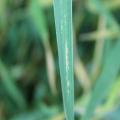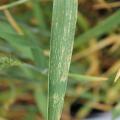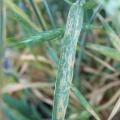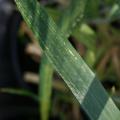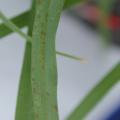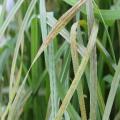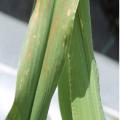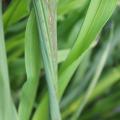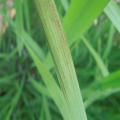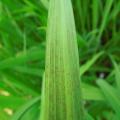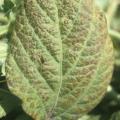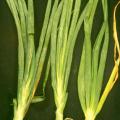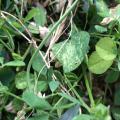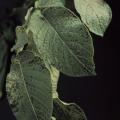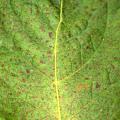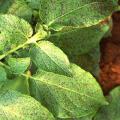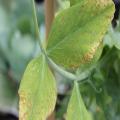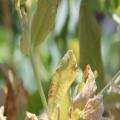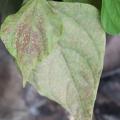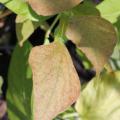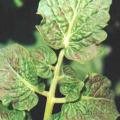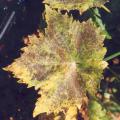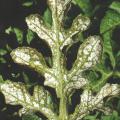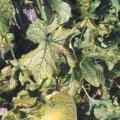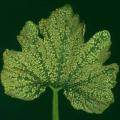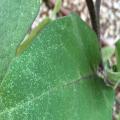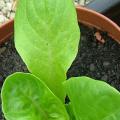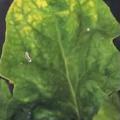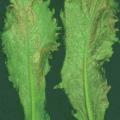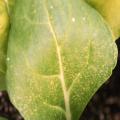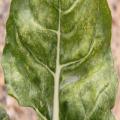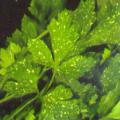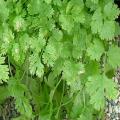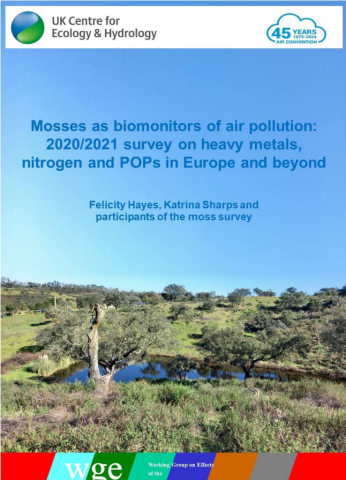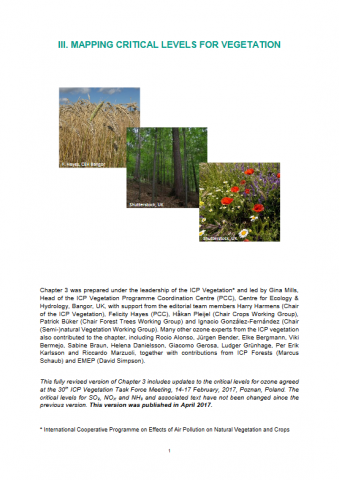Agricultural – cereal
a) Different levels of ozone injury on common wheat flag leaves
b) Ozone injury on durum wheat leaves
c) Different levels of ozone injury on f millet. Symptoms begin with leaf bronzing, with white stippling appearing after ~2 weeks of O3 exposure.
d) Different levels of ozone injury on pearl millet, showing leaf bronzing and necrotic patches.
e) Bronzing symptoms on rice leaves
f) Maize
Agricultural - non-cereal
g) Soybean h) Onion i) Alfalfa
j) Injury symptoms on different potato cultivars
k) Ozone injury on peas
l) Ozone injury on common bean leaves (cv. Black Turtle)
m) Mung bean
Fruit crops
n) Tomato o) Grape p) Watermelon
q) Muskmelon r) Courgette s) Aubergine
Leaf salad crops
t) Lettuce u) Spinach v) Chicory
w) Yellow interveinal stippling on Swiss chard. As exposure symptoms worsen, necrotic patches appear on leaves.
Cooking herbs
x) Parsley y) Coriander
Photos courtesy of: (a) K. Sharps, Common wheat (Triticum aestivum); (b) R. Marzuoli, Durum wheat (Triticum durum); (c) K. Sharps, f millet (Eleusine coracana); (d) K. Sharps, Pearl millet (Pennisetum glaucum); (e) M. Frei, Rice (Oryza sativa); (f) D. Velissariou, Maize (Zea mays); (g) B. Gimeno, Soybean (Glycine max); (h) D. Velissariou, Onion (Allium cepa); (i) G. Mills, Alfalfa (Medicago sativa); (j) 1). H. Pleijel; 2). E. Calvo (cv. Agria) www.ozoneinjury.org; 3). E. Calvo (cv. Charlotte) www.ozoneinjury.org: Potato (Solanum tuberosum); (k) K. Sharps, Pea (Pisum sativum); (l) K. Sharps, Common bean (Phaseolus vulgaris, cv. Black Turtle); (m) K. Sharps, Mung bean (Vigna radiata); (n) V. Bermejo, Tomato (Lycopersicon esculentum); (o) D. Velissariou, Grape (Vitis vinifera); (p) B. Gimeno, Watermelon (Citrullus lanatus); (q) D. Velissariou, Muskmelon (Cucumis melo); (r) D. Velissariou, Courgette (Cucurbita pepo); (s) G. Mills, Aubergine (Solanum melongena); (t) F. Hayes, Lettuce (Lactuca sativa); (u) E. Calvo, Spinach (Spinacia oleracea L.) www.ozoneinjury.org; (v) D. Velissariou, Chicory (Cichorium intybus); (w) 1). I. Fernandez Gonzalez; 2&3). E. Calvo: Swiss chard (Beta vulgaris L. var. cycla ); (x) D. Velissariou, Parsley (Petroselinum crispum); (y) F. Hayes, Coriander (Coriandrum sativum).
Notes: Potato images from E. Calvo (CEAM) were from an experiment testing the ozone effects on 8 potato cultivars. Some results were presented at the 22nd Task Force Meeting of the ICP Vegetation at Braunschweing, Germany. Ref: Calvo, E., Marco, F., Martin, C., Calatayud, V. & Sanz, M.J. (2009) Comparative ozone sensitivity of eight potato cultivars.
For more information on the effects of ozone on spinach and swiss chard, see the following recently published paper:
González-Fernández, I., Elvira, S., Calatayud, V., Calvo, E., Aparicio, P., Sánchez, M., Alonso, R. & Bermejo Bermejo, V. (2016) Ozone effects on the physiology and marketable biomass of leafy vegetables under Mediterranean conditions : Spinach (Spinacia oleracea L.) and Swiss chard (Beta vulgaris L. var. cycla). Agriculture, Ecosystems & Environment, 235:215–228. doi: 10.1016/j.agee.2016.10.023
For more information on the effects of ozone on durum wheat, the following papers:
Gerosa, G., Marzuoli, R., Finco, A., Monga, R., Fusaro, I. & Faoro, F. (2014) Contrasting effects of water salinity and ozone concentration on two cultivars of durum wheat (Triticum durum Desf.) in Mediterranean conditions. Environmental Pollution, 193: 13-21.
Monga, R., Marzuoli, R., Alonso, R., Bermejo, V., Gonzalez-Fernandez, I., Faoro F. & Gerosa, G. (2015) Varietal screening of ozone sensitivity in Mediterranean durum wheat (Triticum durum, Desf.). Atmospheric Environment, 110: 18-26. DOI: 10.1016/j.atmosenv.2015.03.04
Picchi, V., Monga, R., Marzuoli, R., Gerosa, G. & Faoro, F. (2017) Plant Physiology and Biochemistry, 112: 261-269.
